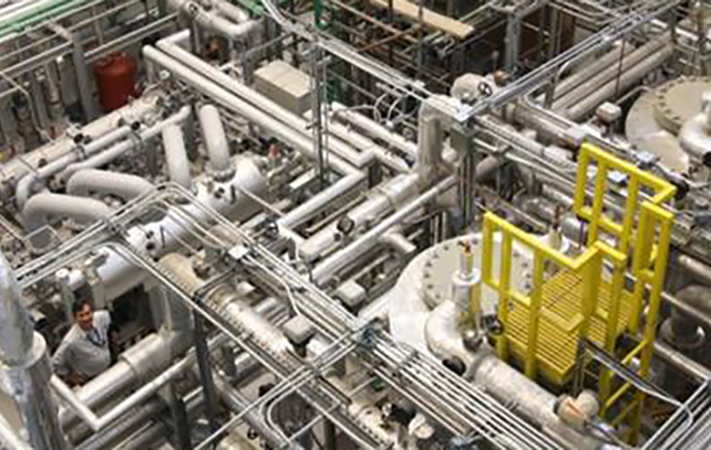Hybrid desalination pilot plant being built at KAUST

Dr. Kim Choon Ng, Visiting Professor of Environmental Science and Engineering, standing in the desalination pilot plant.
A new hybrid desalination pilot plant is in the process of being built at KAUST on top of the current adsorption desalination (AD) plant at LFO27. “The new desalination pilot is a hybrid between the adsorption cycle and the multi-effect distillation (MED) cycles,” said Dr. Kim Choon Ng, Visiting Professor of Environmental Science and Engineering.
More environmentally friendly than traditional methods, adsorption desalination (AD) is an emerging, low cost solution for potable water production that can be used as a solution for agriculture, homes and industries. Ng says one of the reasons for integrating the two cycles is that it will improve water production yields. “The integration is estimated to produce up to three times more water production for almost the same heat resource. We called this the thermodynamic synergy between the thermally-driven cycles,” he said.
The reason it’s being built now is because the center’s OCRF grant was approved in 2013, so they have the funds. Also, the original adsorption cycle was created as a feed for the operation and understanding of the desalination process with Red Sea water and not made for thermodynamic synergy.
Recently the desalination team completed the testing with the solar-powered adsorption pilot plant and trained several KAUST Master’s students in the desalination process. This new hybrid cycle will continue their desalination research based on the performances of the adsorption and multi-effect distillation plant. “We have completed the cycle simulations and published much of it,” Ng said.
The estimated timeline for completing the new plant is October or November 2014.

